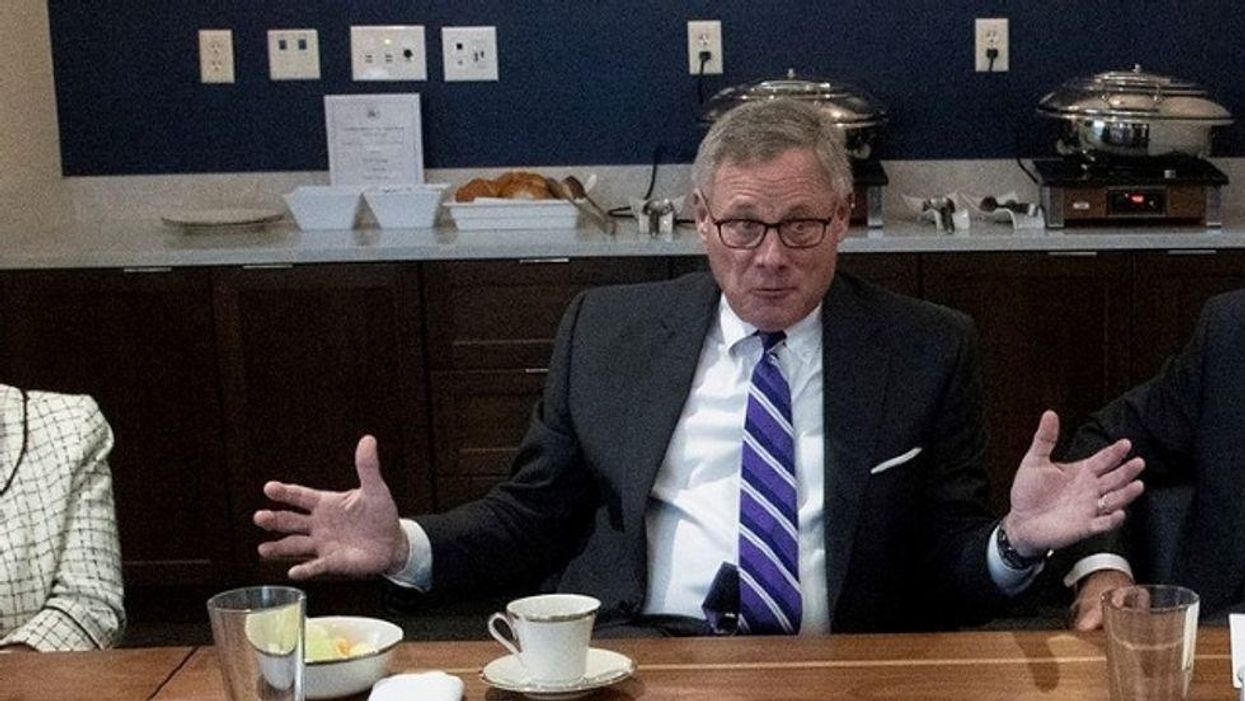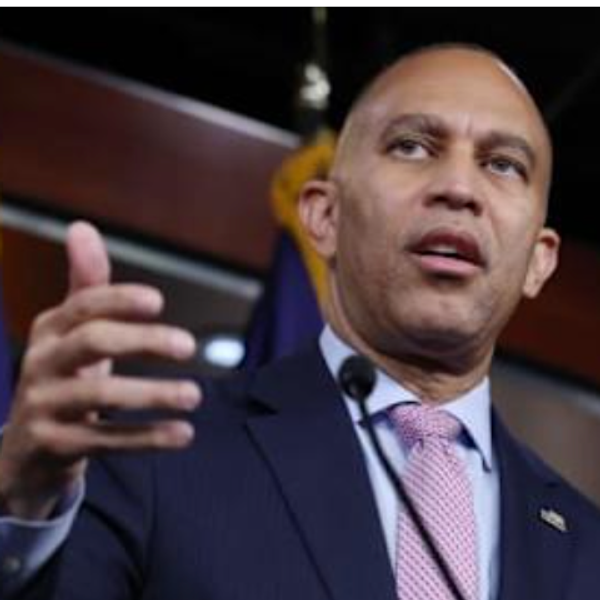
Sen. Richard Burr
Reprinted with permission from ProPublica
After Sen. Richard Burr of North Carolina dumped more than $1.6 million in stocks in February 2020 a week before the coronavirus market crash, he called his brother-in-law, according to a new Securities and Exchange Commission filing.
They talked for 50 seconds.
Burr, according to the SEC, had material nonpublic information regarding the incoming economic impact of coronavirus.
The very next minute, Burr's brother-in-law, Gerald Fauth, called his broker.
Fact-based, independent journalism is needed now more than ever.
The revelations come as part of an effort by the SEC to force Fauth to comply with a subpoena that the agency said he has stonewalled for more than a year, and which was filed not long after ProPublica's story.
ProPublica previously reported that Fauth, a member of the National Mediation Board, had dumped stock the same day Burr did. But it was previously unknown that Burr and Fauth spoke that day, and that their contact came just before Fauth began the process of dumping stock himself.In the filings, the SEC also revealed that there is an ongoing insider trading investigation into both Burr and Fauth's trades.
It had previously been reported that federal prosecutors had decided not to charge Burr.
Burr's spokesperson did not immediately respond to questions. Fauth's lawyer and the SEC did not respond to questions. Fauth hung up on a ProPublica reporter.
According to the SEC, Fauth has cited a medical condition for why he cannot comply with the subpoena, even as he has been healthy enough to continue his duties at the National Mediation Board. In its filings, the SEC accuses Fauth of engaging in "a relentless battle" to dodge the subpoena.
In 2017, President Donald Trump appointed Fauth to the three-person board, a federal agency that facilitates labor-management relations within the nation's railroad and airline industries. President Joe Biden reappointed him to the board.
On the day he received the call from Burr, Fauth sold between $97,000 and $280,000 worth of shares in six companies — including several that were hit particularly hard in the market swoon and economic downturn. According to the SEC, the first broker he called after hearing from Burr was out of the office, so he immediately called another broker to execute the trades.
In its filings, the SEC also alleges, for the first time, that Burr had material nonpublic information about the economic impact of the coming coronavirus crisis, based on his role at the time as chairman of the intelligence committee, as a member of the health committee and through former staffers who were directing key aspects of the government response to the virus.
The week after the trades, the market began its crash, falling by more than 30 percent in the subsequent month.
Burr came under scrutiny after ProPublica reported that he sold off a significant percentage of his stocks shortly before the market tanked, unloading between $628,000 and $1.72 million of his holdings on February 13 in 33 separate transactions. The precise amount of his stock sales, more than $1.6 million, is also a new detail from this week's SEC filings. In his roles on the intelligence and health committees, Burr had access to the government's most highly classified information about threats to America's security and public health concerns.
Before his sell-off, Burr had assured the public that the federal government was well prepared to handle the virus. In a February 7 op-ed that he co-authored with another senator, he said "the United States today is better prepared than ever before to face emerging public health threats, like the coronavirus."
That month, however, according to a recording obtained by NPR, Burr had given a VIP group at an exclusive social club a much more dire preview of the economic impact of the coronavirus, warning it could curtail business travel, cause schools to be closed and result in the military mobilizing to compensate for overwhelmed hospitals.
Burr defended his actions, saying he relied solely on public information, including CNBC reports, to inform his trades and did not rely on information he obtained as a senator.
Alice Fisher, Burr's attorney, told ProPublica at the time that "Sen. Burr participated in the stock market based on public information and he did not coordinate his decision to trade on February 13 with Mr. Fauth."
- DOJ Won't Pursue Insider Trading Charges Against Sen. Richard Burr ›
- Time for answers on Sen. Burr's stock sales | Raleigh News ... ›
- Justice Dept. Ends Stock Trade Inquiry Into Richard Burr Without ... ›
- Richard Burr under insider trading investigation by SEC | TheHill ›
- SEC is still investigating Sen. Richard Burr for insider trading, court ... ›
- Richard Burr: DOJ closes insider trading investigation into North ... ›
- DOJ Drops Insider Trading Investigation Into Sen. Richard Burr : NPR ›








